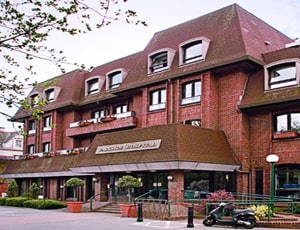Colon Cancer is the abnormal growth of the cells in the inner lining of the colon part of the large intestine also known as bowel cancer, colon cancer, or rectal cancer. This abnormal growth is called a polyp.
Colorectal cancer can affect men and women equally. However, studies have proven that men might develop it at a younger age.
There is no definite cause of colorectal cancer, but old age and certain lifestyle factors can increase colorectal cancer risk. Some of these colorectal cancer risk factors include the following:
A majority of colorectal cancers are adenocarcinoma. If you have been diagnosed with colorectal cancer, there are 95 percent chance that it is an adenocarcinoma. But there are some other types of colorectal cancer such as:
There are no early signs of colorectal cancer, but once it grows, the patients may experience the following colon cancer symptoms:
Before preparing a treatment plan, the doctor is likely to order a few tests. These may include the following:
These tests are used for diagnosis of colorectal cancer. With the help of these tests, the surgeon is able to identify the extent of cancer and accordingly prepare a treatment plan that will suit patient the most.
Colorectal cancer treatment is initiated as soon as the diagnosis is confirmed. However, it is important to determine the stage of cancer before initiating colorectal cancer treatment. The stage of cancer is also determined with the help of tests mentioned above.
The following are the different stages of colorectal cancer:
The doctor selects the most appropriate course of treatment for the patient after assessing the stage. Every patient has a customized treatment plan that is designed to best address their unique needs. The following options could be part of the treatment strategy.
Different types of surgery options can be used as per the identified stage of colorectal cancer. Surgery can be divided into two major segments: Early-stage colorectal cancer surgery and advanced-stage colorectal cancer surgery.
Early-stage colorectal cancer surgery: This is a minimally invasive form of surgery, which is typically recommended when the cancer is small and has not spread to other parts of the body. Early stage colorectal cancer surgery includes the following procedures:
This is a more invasive surgical option, recommended when cancer has grown into or through your colon. It can be of the following types:
In chemotherapy treatment, an anti-cancer drug is used to destroy the cancerous cells. It is commonly used before surgery, in an attempt to shrink a tumor before its surgical removal. It can also be given to relieve symptoms of colon cancer, in case it has spread to other parts of the body.
A certain number of chemotherapy cycles are also repeated after the surgery to kill the remaining cancer cells. This helps minimize the chances of cancer recurrence.
In this treatment, radiation beams such as X-ray or proton beams are used to kill cancer cells. It also prevents cancer cells from multiplying any further. This treatment is more commonly used for rectal cancer treatment before surgery to shrink the tumor. It can also be used after the surgery. Radiation therapy is the best treatment if cancer has penetrated through the wall of the rectum or traveled to nearby lymph nodes.
Targeted drug therapy is typically used for people with advanced colon cancer. It can be given alone or in combination with chemotherapy. Specific drugs help cancer cells commit suicide and strengthen the immune system. However, this treatment comes with limited benefits and risk of side effects.
Patients undergoing the surgery are required to stay in the hospital for at least two to three days after the surgery. You may expect yourself to be discharged from the hospital after regaining bowel function and the ability to eat without the support of an IV. Pain is controlled with the help of medications and it may take another two to three weeks at home before you can switch back to your normal routine.
If the Patient had surgery for the removal of bowel cancer, it may take a few weeks before you can return to work. In the case of laparoscopic surgery, you can return to work in about two weeks. In the case of open surgery, it may take around four to six weeks for you to return to work.
Patients must pay particular attention to eating the right food and avoid dehydration after bowel cancer surgery. Include high-protein foods in your diet and choose low-fiber foods if you have diarrhea. Additionally, eat limited amounts of green vegetables and only eat peeled fruits.
Patients who undergo chemotherapy before or after the surgery may experience a few side effects such as nausea, vomiting, fatigue, and pint pain. Make sure to drink plenty of fluids to minimize the side effects and recover quickly. Take emergency medications prescribed by the doctor, if needed.

Delhi, India
Equipped with more than 50 specialty institutes, Indraprastha Apollo was started with the vision of ...more
![]() Private Driver / Limousine Services
Private Driver / Limousine Services
![]() International Cuisine
International Cuisine
![]() Phone in Room
Phone in Room
![]() Online Doctor Consultation
Online Doctor Consultation

London, United Kingdom
History Parkside Hospital based in London is currently owned by Aspen Healthcare. Aspen Healthcare ...more
![]() Airport Transfer
Airport Transfer
![]() Choice of Meals
Choice of Meals
![]() Interpreter
Interpreter
![]() SIM
SIM

Tel Aviv, Israel
Assuta Medical Center is a leading private hospital in the capital city of Tel Aviv in Israel. Assut...more
![]() Airport Transfer
Airport Transfer
![]() Choice of Meals
Choice of Meals
![]() Interpreter
Interpreter
![]() TV inside room
TV inside room

Surgical Oncologist
Delhi, India
15 of experience
USD 45 for video consultation

Medical Oncologist
Gurgaon, India
18 Years of experience
USD 48 for video consultation

Medical Oncologist
Gurugram, India
10 of experience
USD 50 for video consultation

Medical Oncologist
Ghaziabad, India
18 Years of experience
USD 28 for video consultation
Q: Can colon cancer recur?
A: Colon cancer recurrence is a common problem and may lead to death.
Q: Can colon cancer be cured completely?
A: It is possible to cure colorectal cancer if it is restricted to just the bowel. Treatment becomes difficult if it has spread to other cells and tissues.
Q: How will I know if I am dehydrated?
A: Some of the signs of dehydration include muscle cramps, increased thirst, low urine output or dark urine, significant weight loss within 24 hours, weakness, dizziness, and hypotension.
Q: How frequently should a colostomy bag be changed?
A: The colostomy pouch change should be conducted every three to five days.
Q: Is it possible to reverse colostomy?
A: It is possible to reverse colostomy but no all colostomies can be reversed.